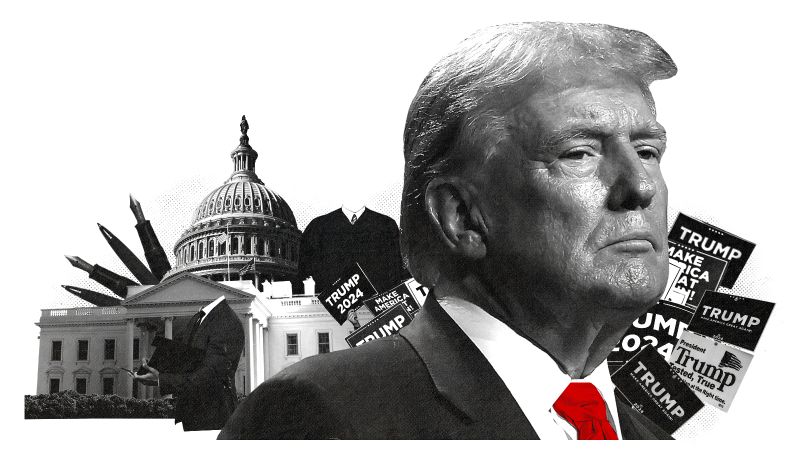Just over a month before the Iowa caucuses, a Republican political operative in Washington analyzed the dynamics of his party’s presidential primary. With a list of contenders narrowing down, the operative noted the potential risks of nominating a former president facing indictments and criminal charges. He confidently declared, “This is Trump’s party.” However, he also emphasized that Trump’s second term would be different than the first, citing the changes surrounding the former president that worked to his advantage.
Fast forward six months, and Trump has become the presumptive Republican nominee, despite being a convicted felon. The aftermath of his conviction showcased a unified Republican support for Trump, with his campaign raising an impressive $53 million in a single day post-conviction. Trump’s promises of political revenge in a second term have gained traction among his supporters, who actively explore legal theories and policy proposals to fulfill his wishes.
The environment around Trump has significantly shifted, with once formidable political guardrails and institutional norms now diminished or eliminated in favor of the former president. Trump’s ascension to the White House with increased congressional Republican support sets the stage for a different second term if he wins. His recent visit to Capitol Hill, post his January 6th attack, highlighted the unwavering backing from House and Senate Republicans, with many former critics now retired or defeated.
The cornerstone of Trump’s first term, his transformation of the federal judiciary, remains a significant achievement. His imprint on the Supreme Court and lower courts has reshaped the ideological balance. The judiciary’s role in blocking or forcing the withdrawal of a majority of Trump administration rules in his first term underscores the potential impact of a second term on implementing his policies without congressional approval.
Trump’s campaign is fueled by expansive proposals aimed at reinvigorating policies on immigration, taxes, and trade, with a focus on utilizing his executive power to swiftly enact these changes. His agenda, outlined on his campaign website under “Agenda 47,” is clear and prominently featured in his rallies.
As Trump gears up for a potential second term, the roadmap from his first term serves as a guide for his administration’s future actions. The support from congressional Republicans, reshaped judiciary, and evolved policymaking process paint a picture of a Trump presidency with a renewed vision and determination.



